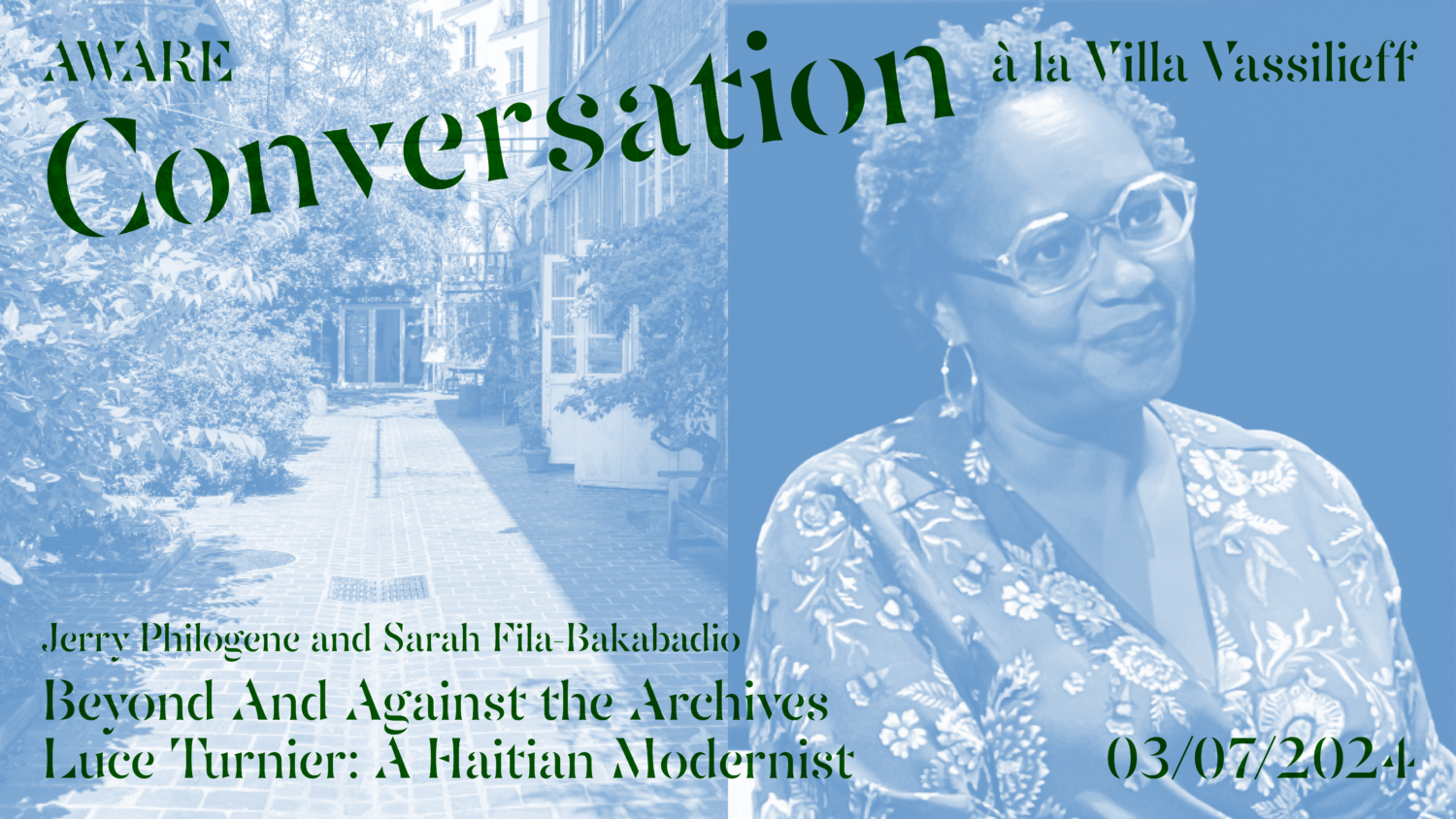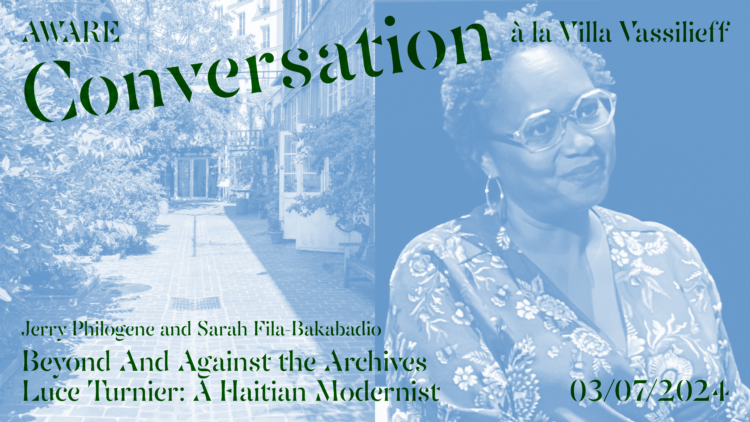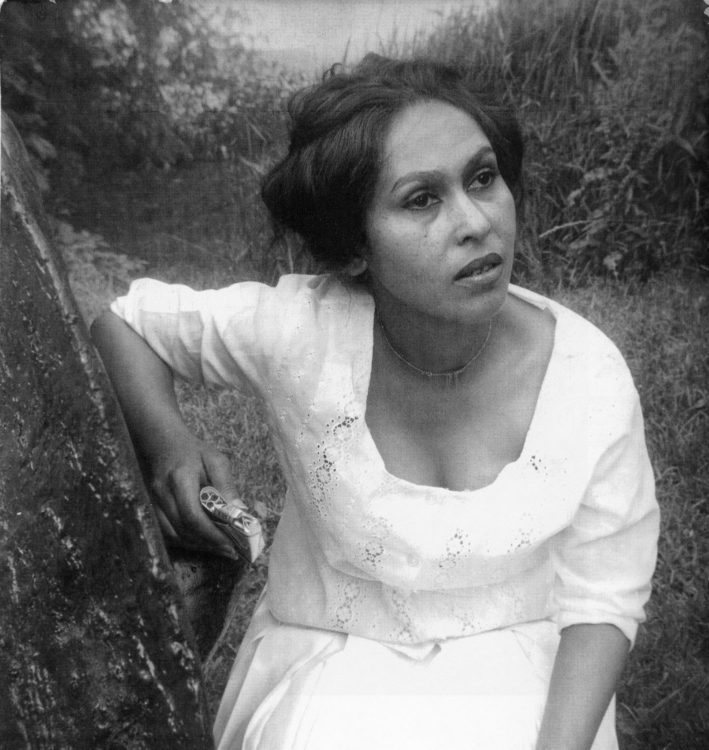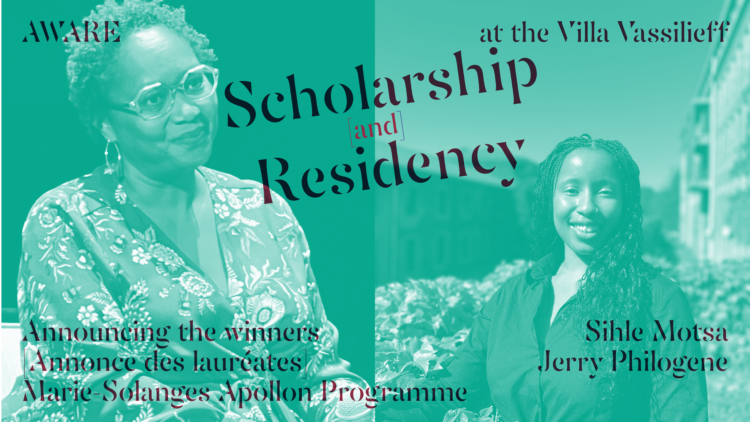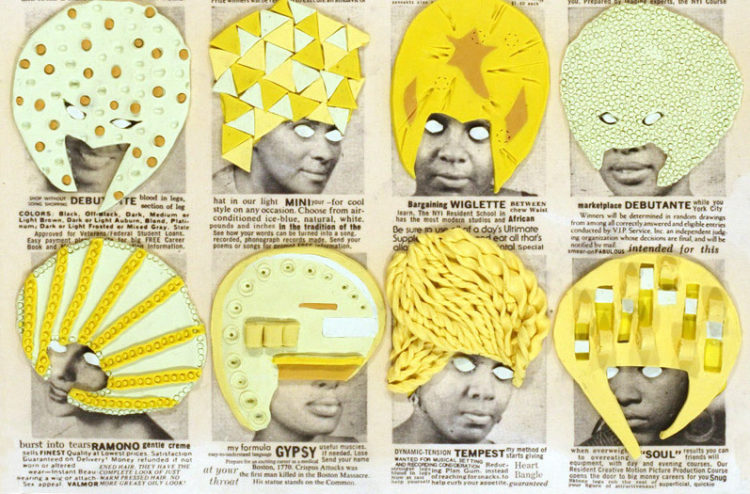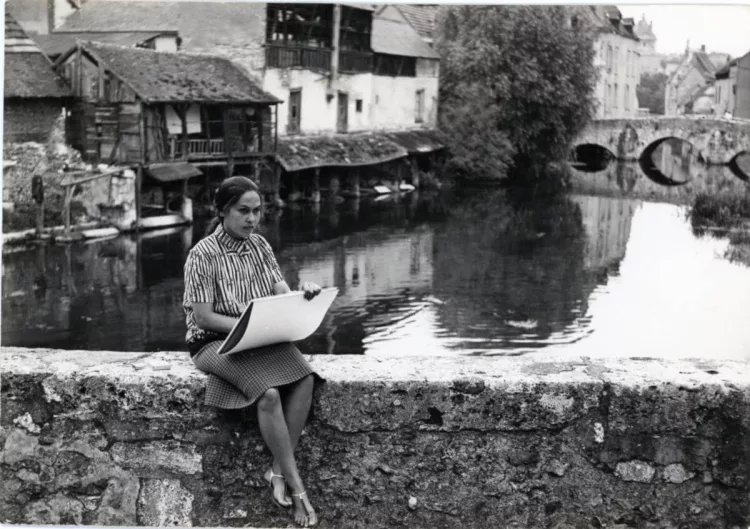Events
From left to right: Chemin du Montparnasse, Photo: Margot Montigny ; Jerry Philogene, Photo: Deborah Jack; Design by Lisa Sturacci studio, © AWARE: Archives of Women Artists, Research & Exhibitions
21, avenue du Maine
75015 Paris
Montparnasse – Bienvenüe metro station, Exit 2, Lines 4, 6, 12 and 13
Villa Vassilieff is accessible to visitors using wheeled devices or who have mobility difficulties thanks to special facilities (access ramp, adapted toilets, and a lift).
In addition, several reserved parking spaces are available close to the Villa Vassilieff:
• in front of 4 rue d’Alençon, 75015 Paris
• in front of 7 rue Antoine Bourdelle, 75015 Paris
• in front of 23 rue de l’Arrivée, 75015 Paris
Consult the map of adapted parking spaces in Paris here.
As part of the Marie-Solanges Apollon residency, researcher-in-residence Jerry Philogene will present her research on the Haitian modernist painter Luce Turnier on July 3, in conversation with historian in American and African American Studies and Associate Professor, Sarah Fila-Bakabadio whose research focuses on Black intellectual and cultural history and the visual representations of the Black body and Black beauty.
Their conversation will explore global Black modernist art that is sufficiently epistemologically capacious to allow for transatlantic and transcultural creative practices.
Some of the questions that animate Professor Philogene’s research project are: What would it mean to study a known yet under-recognized transnational, Haitian modernist woman painter and collagist of the mid- to late twentieth-century arts of the African diaspora? What would it mean to write about a particular formative moment that goes against the well-documented and conventional masculinist narrative of an art history? What might be some of the art historical implications of a narrative that not only includes women, but centers them? What is at stake in an inquiry to articulate the artwork of a figure like Turnier, a transnational Black Haitian woman who studied in New York and Paris in the 1950s?
Practical information
Wednesday, July 3, 2024, from 6:30 to 8:00 pm
The conversation will be held in English. An informal drink will follow the discussions.
Free registration here.
Sarah Fila-Bakabadio is historian in American and African American Studies and Associate Professor at CY Cergy Paris Université. She is the editor-in-chief of African Diaspora (Brill), a member of the research center AGORA (EA 7392), and member of the editorial committee of Ròt-Bò-Krik publishing house.Her research explores the Black Atlantic. It addresses the intellectual, cultural, and political circulations of African-Americans and European Afro-descendants in the 20th and 21st centuries. She has studied African American revolutionary connections to Africa in the 1960s and 1970s; the formation and migration of studies (Black Studies and African Diaspora Studies); the visual representations of the black body and black beauty. In 2016, she published Africa on my mind : une histoire sociale des afrocentrismes afro-américains (Les indes savantes). This study traces the origins of the notion of Afrocentrism and describes the practices of reafricanization it initiated in the United States from 1965 to the early 2000s. She also co-edited several special issues and wrote many articles and books chapters.
Jerry Philogene is Associate Professor and Director of the Black Studies Program at Middlebury College. Prior to going to Middlebury, she was Associate Professor in American Studies Department at Dickinson College, where she specialized in interdisciplinary American cultural history, art history, and visual arts of the Caribbean and the African diaspora with an emphasis on the Francophone Caribbean. Dr. Philogene is an independent curator. In 2023, she co-organized with Dr. Katherine Smith the Myrlande Constant: The Work of Radiance, an exhibition on the contemporary textile works of Haitian artist Myrlande Constant, Fowler Museum, UCLA. Dr. Philogene is the recipient of a 2020 Andy Warhol Foundation Arts Writers Grant for her book manuscript The Socially Dead and Improbable Citizen: Visualizing Haitian Humanity and Visual Aesthetics.
